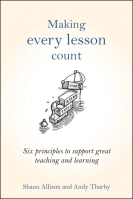This blog aims to outline how we as teachers can ensure reading in our lessons supports students to access our curriculum. We will unpick how we can develop students through reading to support comprehension and acquire knowledge.
What does ‘purposeful reading’ actually mean?
Purposeful reading happens when pupils read an extended text as part of the subject curriculum e.g. a source in history or a case study in geography. Purposeful reading is scaffolded by the teacher to support comprehension of the text and acquisition of subject knowledge.
How might this look in the classroom?
Before reading:
- Purpose: the teacher introduces the text and explains why the class will be reading it.
- Prediction/prior knowledge: the teacher elicits prior knowledge about the topic or asks for a prediction by gathering responses, e.g. “Write down two things on your whiteboard that you already know about tectonic plates”.
- Vocabulary instruction: pre-teach concepts or vocabulary that is crucial for comprehension.
Teacher reading (optional):
- The teacher reads the full text aloud with effective pacing, volume, intonation and pausing. This step is required when the text is very challenging and/or the class contains pupils with low reading ages.
During pupil reading:
- Teacher clarifies the focus of reading and strategies to support comprehension: e.g. “As you are reading I would like you to write down three questions you have about the text” or “Underline and annotate words and phrases that build our understanding of X“.
- If this is a new strategy, the teacher will use a guided practice cycle: e.g. I, we, you modelling.
- The teacher sets up means of participation to ensure pupils are reading in silence and checks that pupils are actively using the comprehension strategy while reading.
After reading:
- Teacher uses cold calling to check comprehension of the text and/or gather feedback from the comprehension strategy e.g. “What questions did you have about the text?“.
- Pupils complete a short summarisation task: e.g. “Bullet point what we have learned about atomic structure“.
Why is this such an important topic to think about?
- Written English is more formal, structured and complex than spoken English. Teacher talk and slideshows alone do not sufficiently prepare pupils for the literacy requirements of GCSE, further study or the world of work.
- Reading exposes pupils to subject specific vocabulary, language structures and background knowledge.
- The explicit teaching of reading comprehension strategies is supported by strong evidence.
What are the high frequency errors that teachers make regarding purposeful reading?
- Teachers over-estimate pupils’ language, vocabulary and background knowledge when planning lessons.
- Pupils forget the pre-taught vocabulary and subject knowledge while they are reading – a glossary will help with this.
- Teachers use extremely complex texts significantly beyond pupils’ reading ages leading to disengagement.
- A text beyond a pupils’ reading age is set for homework.
James Crane
Deputy Director of Durrington Research School
Please contact research@durring.com if you would like to explore how the research school can support your professional development and/or teaching learning needs.

